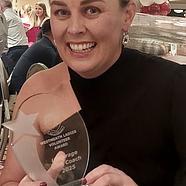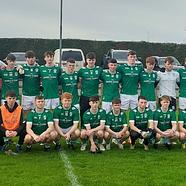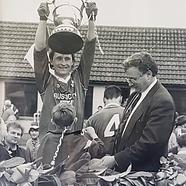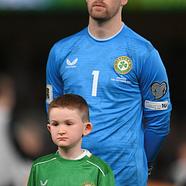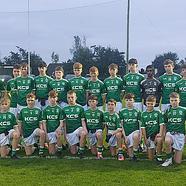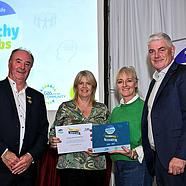Big Lessons from Small Town Success and that of Conor Bradley (but will anyone read this post?)
The recent elevation of Conor Bradley to first-team action with Liverpool FC is interesting and should provide some food for thought for association football club personnel, coaching schools, team managers’ and even parents who advise young children to quit playing Gaelic football and hurling if they wish to progress their soccer potential.
As has been well documented, young Mr Bradley grew up playing Gaelic football with Aghyaran St Davogs GAA Club and was encouraged to do so by Liverpool FC personnel who actually came to watch him play for Aghyaran as Anthony Devine, as one of Conor’s early GAA coaches explained recently. "Just when Liverpool first came to see him Liverpool actually encouraged him to play Gaelic football ... They were very supportive of the small club and us in particular so they encouraged him to keep playing with his friends until things improved for him ... They actually first came to see him at an under 14 game up in Loughmacrory”.
Conor Bradley joins a significant list of players who reached Premiership (‘the greatest league in the world’) standard after combining, as young children, Gaelic football and/or hurling with their soccer exploits.
There is a lesson there surely: Don’t give up the Gaelic for the almost impossible dream of a promise of a career at the highest level in the association game.
The great Irish Examiner Sport columnist Tommy Martin inspired by the success of St. Thomas' Hurling Club and C.L.G Watty Graham, An Gleann devoted his column this week to a broadly similar theme: How to develop and retain young sporting talent or more accurately how to best maximise the talent at a club’s disposal.
The practice in Norway ‘at the forefront of new thinking in youth sports’ was referenced by Mr Martin. In Norway “developing citizens and not only athletes,” is the guiding philosophy. Lifelong involvement in sport for a broad section of the population is prioritised rather than hothousing a tiny number to international glory.
Therefore
(i) They encourage children to play a wide variety of sports rather than specialising in one;
(ii) there are no competitive games for kids under 12;
(iii) the focus is on participation rather than streaming youngsters into elite development squads;
We will let Tommy Martin tell the rest of the story in his most eloquent manner:
“If you are involved or half-interested in coaching, you may have come across the Mike Quirke Podcast, hosted by the titular former Kerry midfielder and current selector.
An enlightened forum for the latest thinking on all things cone-and bib-related, Quirke was recently joined by Dr Mark O’Sullivan, a Corkman who is the associate professor of football at the Norwegian School of Sports Sciences.
In classic Scandi-pop vernacular, the policy is called The Joy of Sport For All and the funny thing is that it has actually led to them being enormously successful anyway, and not just in Winter Olympics where, with obvious advantages, they top the medal table.
Viking blood and having a massive sovereign wealth fund also helps, but you get the picture.
Anyway, Dr O’Sullivan’s take on all this stuff was a bucket of cold water on all the things we are used to seeing in how underage sports are run – specialisation, elitism, streaming, over-competitive nutters on the sidelines.
He calls it the “Standard Model of Talent Development (SMTD),” academic speak for the Lord of the Flies knife-fight that we put kids through in the name of sport, where a small number survive and most of the rest end up disillusioned or walking away.
What has any of this to do with small-town success stories in the club GAA world? Well, Dr O’Sullivan described the SMTD using a striking metaphor: basically putting a load of eggs in a bag, throwing the bag against the wall, taking out the egg that doesn’t break and calling that a success.
But if you are village GAA team with big aspirations, you look after every egg. You certainly never fling it at a wall. You phone that egg’s parents (chickens presumably?) and make sure they are available for the match or training. You never tell the egg they are on the B team because there is no B team.
You don’t put them on the subs bench because there are no subs, nor is there a bench. Maybe that egg wants to move away to Ulan Bator, or worse, Dublin, but you know the egg will roll back for the big match, partly because of a sense of obligation, but mostly because they know they are needed and eggs, like people, love to feel needed”.


